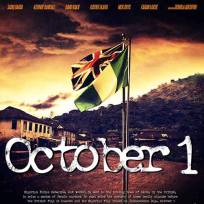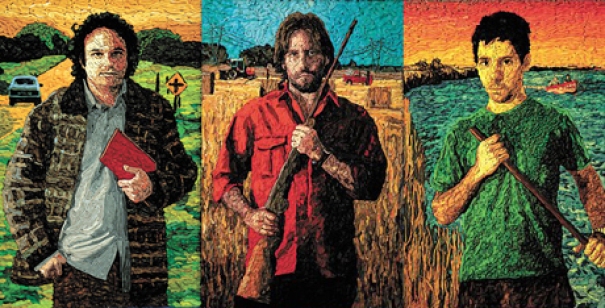October 1 Film Difficulty Ranking: 2
Nigerian Independence Day (October 1st) is fast approaching. A police officer is sent into unknown territory to investigate a string of murders. Can he solve them before Independence Day? For an African thriller which explores colonialism, religion, and tribalism, you can’t go wrong with this film. Plus it’s available on Netflix!
Why Watch October 1?
- For a perfect gateway into Nigerian film (Nollywood)
- It covers a lot – exploring tribalism, western imperialism, unification, racism, religion, colonialism, and more
- To hear a range of languages – English, Hausa, Yoruba, and Igbo
- It’s easy to watch – it feels much more like the easy-going South African Umbango than the art-house Timbuktu
The Breakdown
October 1 starts under a red moon shining red light over the forest. A man chases a screaming woman through the forest until he catches her, rapes her, and leaves her dead on the forest floor.
It’s 1960. Police Officer Dan Waziri is sent to investigate the murders by a trio of English imperialists to ‘clean up’ Nigeria before it’s Independence Day on October 1st. As a Hausa man from the North, Dan Waziri is out of place in Akote. As an outsider, he faces many challenges in solving the case.
The characters provide the main talking point of the film. The trio of white men from the British colonial military are undeniably racist. Prince Aderopo of Akote is questionably for the continuation of British rule. Then there is Miss Tawa, a teacher who is preparing her classes for Nigerian independence. Among this group of characters, Dan is a mediator. He is neither outwardly for or against independence and shows no religious or political bias. He offers us an unbiased look at the political situation of Nigeria in 1960.
Conclusion
October 1 is brave to explore a range of controversial themes at the time of Nigerian independence. Whilst it does it bullishly, you’ll learn about the lasting impact that colonialism has had on Nigeria.




